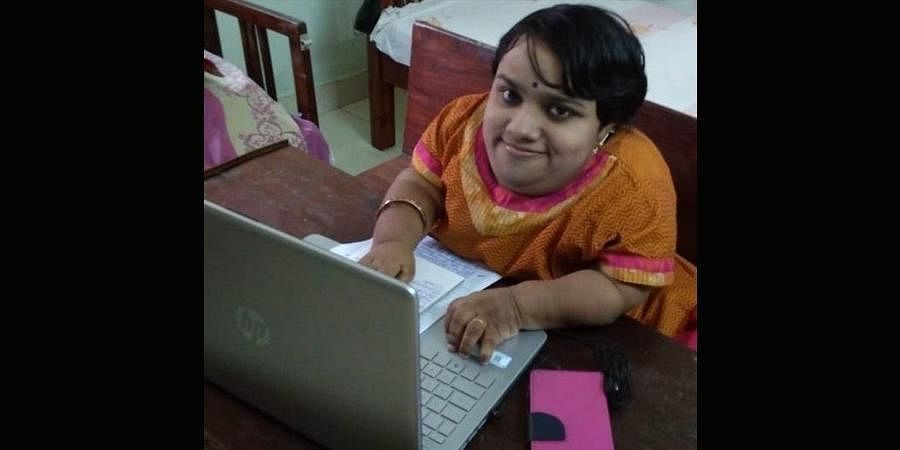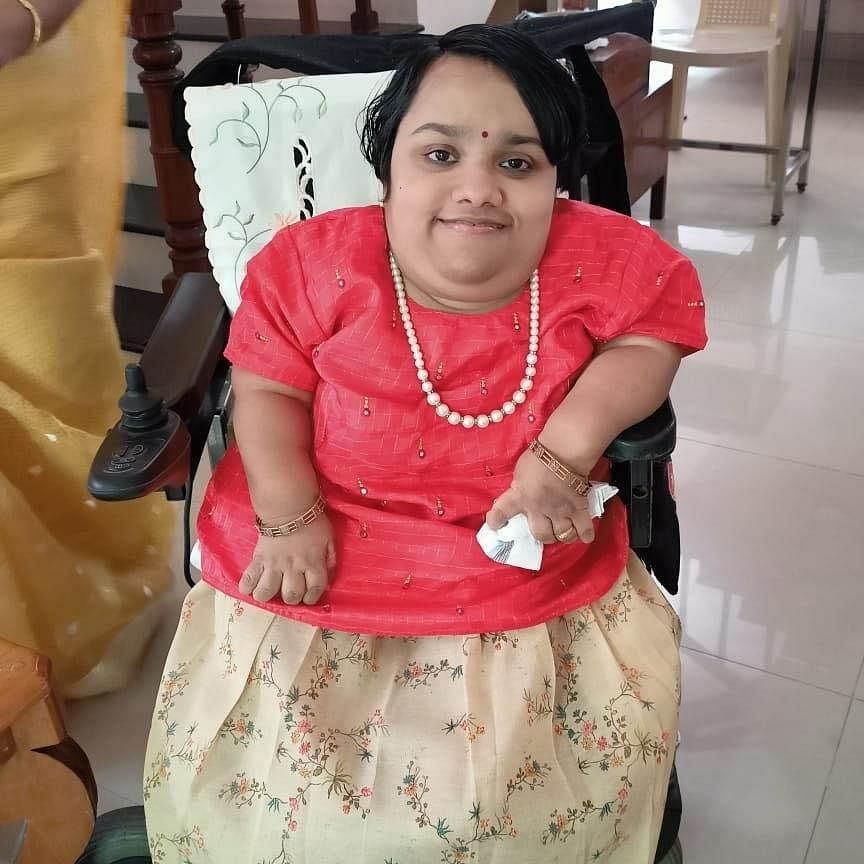Sharada Devi, who prefers ‘disabled’ over ‘differently-abled’, says it is society that disables an individual. She has submitted a doctoral thesis in disability studies, reports Aathira haridas
THIRUVANANTHAPURAM: Disability studies is an all-new realm of academics. It deals not with the medical aspect, but the social, cultural and political realms. And Sharada Devi V, a research scholar based in Thiruvananthapuram, believes it is a field brimming with potential. And she has gone ahead and submitted a doctoral thesis in the field. Titled ‘The Politics of Privilege in Select Discourses on Disability’, the thesis was submitted on the International Day of Persons with Disabilities, December 3.
“Disability studies looks at how people and society see disability,” Sharada says. “It’s a field that has activism involved in it and uses a humanistic approach. Disability doesn’t mean limitation.”She says disability studies came into being to thwart the discrimination, oppression and marginalising of the community in society. Her research work spanned three years and seven months, more so because she was a disabled researcher using a wheelchair.
“I’ve faced a lot of difficulties in this society that caters to the non-disabled people. As a disabled researcher, I find that the pandemic period has helped me a lot, when the digital platforms were engaged for academic purposes.” Sharada feels that ‘differently-abled’ is a euphemistic term, and not one that is true to the situation existing in our society. Hence, she prefers the term ‘disabled’.
“Everyone is differently-abled. Using the term differently-abled only aids in alienating and marginalising the disabled in society. Disability is a social construct. It is not a handicap. I am disabled because of society. It is not my limitation but a limitation that society has put on me,” she says. Sharada stresses on two areas that are cardinal to enabling disabled people get their rights — giving educational opportunities and allowing a disabled-friendly environment. “Education empowers one, and ensuring employment opportunities is crucial.”
Sharada is now gearing up to defend her thesis, and preparing for job interviews and doing online tutoring. Having worked earlier as a guest lecturer, she believes teaching is one of the most rewarding professions.
“Even the concept of teaching has changed. It is not authoritarian anymore,” she says. She started research under the supervision of B S Jamuna at the Institute of English under the Kerala University, and it was submitted under the supervision of Meena T Pillai, dean, faculty of arts, Kerala University. While her schooling was at the Government HSS for Girls, Cotton Hill, she completed her master’s in English Literature from the Government College for Women.
Article Credits: The New Indian Express


Thats amazing🥺🥺🥺
Yes, indeed.